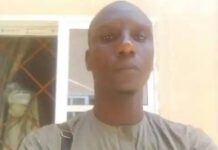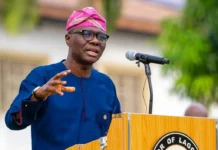 THE Board of the World Bank will today announce its choice of who leads the bank as President today.
THE Board of the World Bank will today announce its choice of who leads the bank as President today.
In the running for the plum job is Nigeria’s Finance Minister, Ngozi Okonjo-Iweala and a health expert, Dr. Jim Yong Kim.
In arriving at the choice, former National Chairman, Justice Party (JP), Ralph Obioha, has asked world leaders to demonstrate in practical terms the end of colonialism by insisting on merit in the choice of the next president of the World Bank.
Obioha, who spoke in Enugu yesterday, stated that allowing Okonjo-Iweala to occupy the position would not only be meritorious but beneficial to the entire world in view of her experience. But according to agency report, despite an unprecedented challenge from two developing-world candidates, Washington’s 66-year lock on the World Bank presidency will almost certainly remain intact when directors meet today to fill the post.
Even after one of the challengers dropped out last Friday to push his support to Okonjo-Iweala – they won’t be able to overcome United States (U.S.) and European backing for the U.S. nominee, health expert Jim Yong Kim, analysts say.
The convention to fill the World Bank position is favourable to the U.S. candidate who starts with 15.74 per cent of the votes in his pocket – the U.S. voting share on the bank’s Board. By contrast, China, the world’s second largest economy, has a 2.67 per cent voting share. Africa as a whole has a paltry five per cent. South America has about the same five per cent.
But the first-ever challenge to traditional American control of the job has signalled that, as with the International Monetary Fund, emerging economies are flexing their muscles for a bigger say in how the near seven-decade old institutions are run.
Bank directors say they aim for a consensus decision when they meet formally today to replace current President Robert Zoellick, the former U.S. diplomat incumbent who is leaving in June at the end of his five-year term.
The position is crucial for much of the developing world. The president oversees workers of 9,000 economists, development experts and other policy specialists, and a loan portfolio that hit $258 billion in 2011.
Last year, the bank committed $43 billion to new loans and grants, helping diverse countries to develop infrastructure, administration, and key sectors of their economies.



